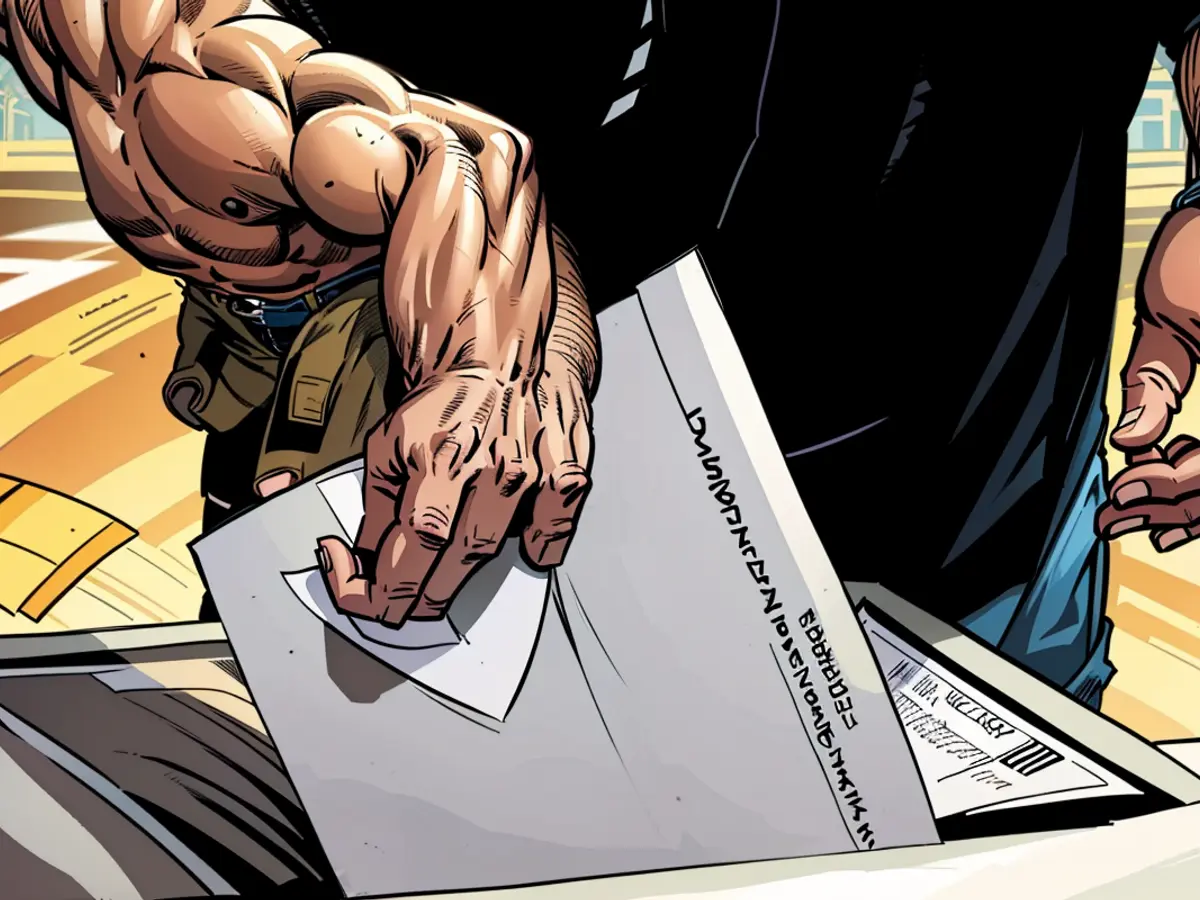The endorsement of the extremist political group in Saxony was manipulated, alleges LKA Saxony.
During the postal vote count, roughly 100 rigged ballot papers were found in at least two voting areas in Dresden. The authorities in Dresden quickly contacted the police and informed the higher election authority about this issue.
Later, the police announced that 17 counterfeit postal votes from various voting sections in Dresden and 14 manipulated ballot papers from two voting sections in the Radeberg district had been tampered with in favor of the far-right party. This brought the total count of altered ballot papers to 130.
Investigators suspected nursing home workers and postal employees as potential culprits, but the police did not officially confirm this.
On Thursday, the district election committee in Dresden will decide on the outcome of the election review and the number of invalid ballot papers. This will determine the final result for the eight Dresden voting sections and will be forwarded to the higher election authority.
Elections took place in Saxony on Sunday. The far-right "Freie Sachsen" party is not represented in the state parliament. In 2021, the Saxon Office for the Protection of the Constitution classified the "Freie Sachsen" as a right-wing extremist initiative. During the pandemic crisis, "Freie Sachsen" opposed the government's corona measures and actively participated in protests against refugees and energy costs.
Due to a technical error, the preliminary result of the state election in Saxony had to be corrected by the election authority on Monday. Initially, a "false seat allocation" was published, as it was called. The CDU and AfD each lost one seat, while the SPD and Greens each gained one seat. As a result, the AfD's "blocking minority" was also lost.
On Tuesday, the Saxon AfD announced an investigation. "We want to get to the bottom of what happened," said AfD state leader Jörg Urban. Activists and mathematicians will examine the issue. If irregularities are found, the AfD will take legal action.
The CDU, led by Saxony's Minister President Michael Kretschmer (CDU), came out as the strongest party in the state election, just barely ahead of the AfD. Kretschmer wants to meet with "all democratic forces" before forming a government. No dates for the initial talks have been set yet. On Wednesday, the new CDU faction in the Saxon state parliament will hold its constitution meeting, where the faction leader will also be elected.
For Kretschmer's CDU to continue leading the government, they would need cooperation from the newly elected alliance "Bündnis Sahra Wagenknecht" (BSW) and the SPD. However, the BSW requires a state government that rejects the deployment of US medium-range missiles in Germany, advocates for more diplomatic efforts to end the Ukraine war, and reduces arms deliveries to Kyiv.
SPD state chairman Henning Homann expressed strong doubts about a potential coalition with the BSW. Kretschmer also warned against setting boundaries before the talks.
In light of the additional tampered votes discovered, the police investigated potential involvement from nursing home workers and postal employees in the LKA (Landschafts Kreistag Niederlausitz-Annaberg-Bauchdorf) area. The total number of invalid ballot papers from Dresden and Radeberg districts now stands at 130.







